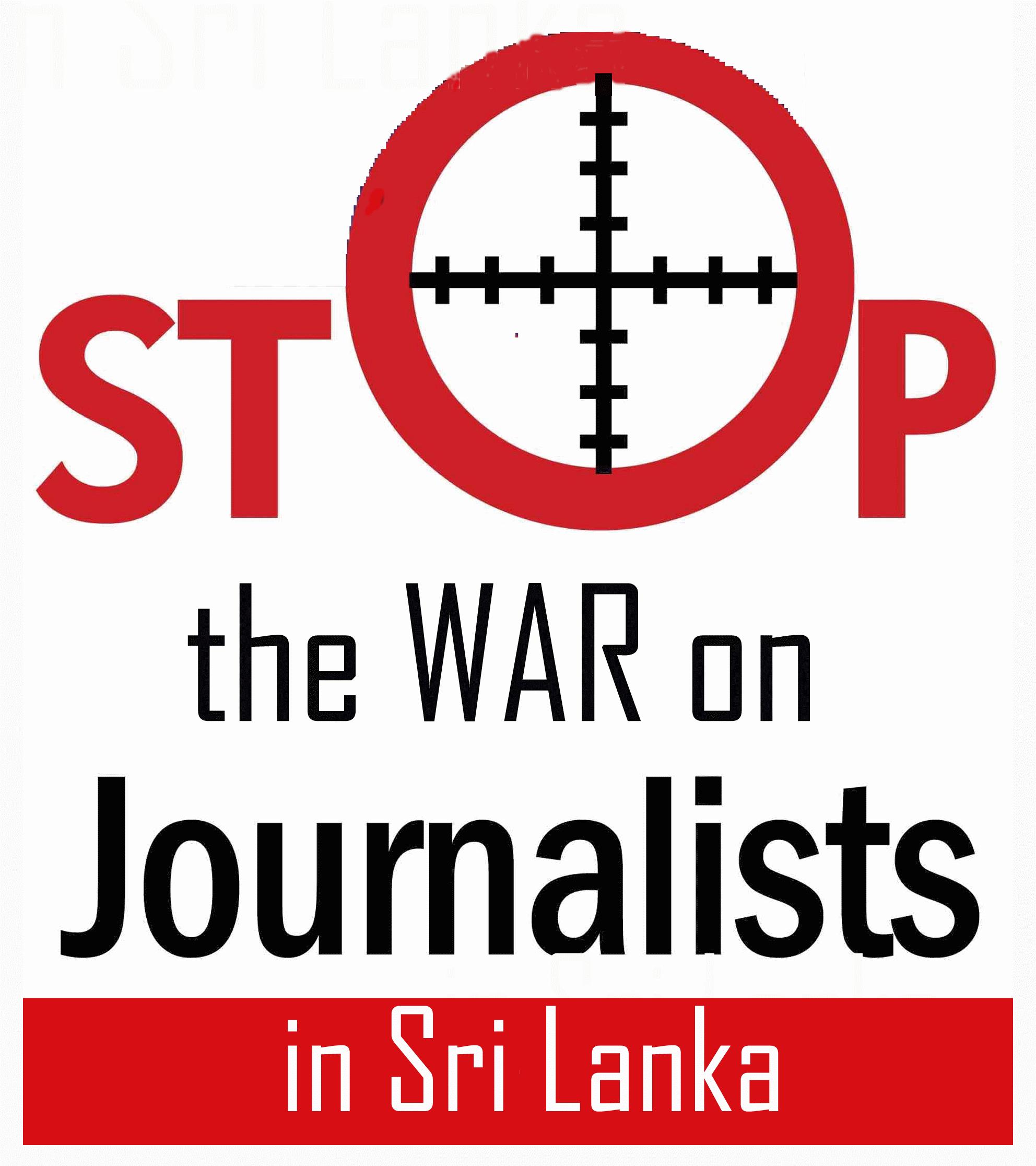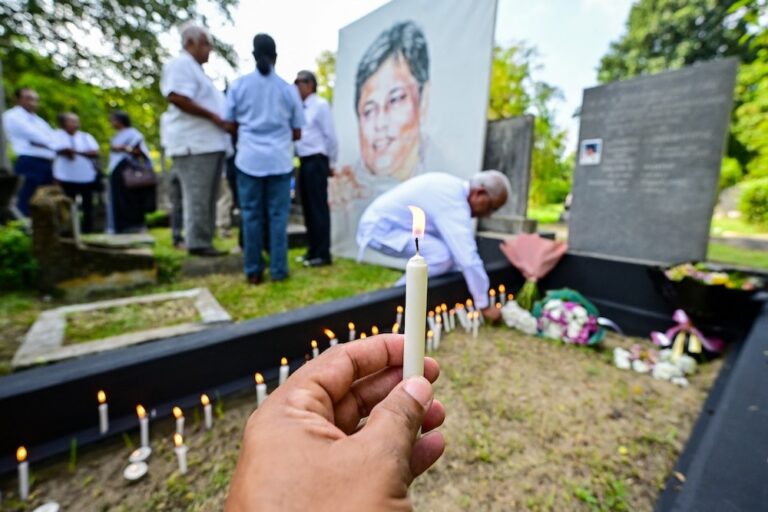Free expression advocates from around the world gathered this week in Oslo, Norway, at the IFEX General Meeting. Thirty IFEX members signed on to a letter to President Mahinda Rajapaksa, calling on him to "stop the war on journalists".
(IFJ/IFEX) – Free expression advocates from around the world gathered this week in Oslo, Norway, at the IFEX General Meeting. Thirty IFEX members signed on to the following letter to President Mahinda Rajapaksa, calling on him to “stop the war on journalists”:
Mr Mahinda Rajapaksa
President
Socialist Democratic Republic of Sri Lanka
c/o Office of the President
Temple Trees
150, Galle Road
Colombo 3, SRI LANKA
E-mail: secretary@presidentsoffice.lk
2 June 2009
Dear President Mahinda Rajapaksa,
RE: Stop the War on Journalists in Sri Lanka
The international press freedom and human rights community is extremely concerned that the lives of journalists and media workers are directly threatened by public statements by Sri Lankan Government officers and authorities accusing independent journalists and media workers of association with the Liberation Tigers of Tamil Elam (LTTE).
The IFJ and other international organisations draw your attention to the abduction and brutal bashing on June 1 of senior journalist and unionist Poddala Jayantha, who was named by government members just days before the assault as an anti-government campaigner who had tarnished the reputation of your government.
Mr Jayantha was severely beaten with metal and wooden poles by six assailants. His hands were crushed with a heavy wooden block, as the attackers told him they would prevent him from continuing his work as a professional journalist.
We respectfully request that, as President of the Socialist Democratic Republic of Sri Lanka, you instruct all members and officers of your government to desist immediately from making public statements that risk inciting acts of violence against journalists and media workers.
We request that the Government of Sri Lanka fulfill its obligations as a signatory to the International Covenant on Civil and Political Rights (ICCPR) to uphold and respect the right to freedom of expression for all people, including journalists, as stipulated under Article 19, and to refrain from actions that endanger journalists’ lives.
We request that the Government of Sri Lanka abide by the Geneva Conventions of 12 August 1949 and the 1997 Additional Protocol on the Protection of Victims of Non-International Armed Conflicts (Protocol II) to ensure the protection of journalists as civilians. Article 13 of Protocol II states: “The civilian population as such, as well as individual civilians, shall not be the object of attack. Acts or threats of violence, the primary purpose of which is to spread terror among the civilian population, are prohibited.”
We request that the Government of Sri Lanka enforce United Nations Security Council Resolution 1738 to Protect Journalists Reporting in War Zones and Crisis Areas, adopted by the Security Council in 2006. The resolution stipulates: “. . . that all parties to an armed conflict comply fully with the obligations applicable to them under international law related to the protection of civilians in armed conflict, including journalists, media professionals and associated personnel.”
You will be aware that Sri Lanka has a reputation as one of the most dangerous places for journalists in the world. Killings, abduction and assault of media personnel have been commonplace under your government. In none of the cases below has anyone been arrested or charged.
– On January 8, Sunday Leader editor Lasantha Wickrematunge was murdered in broad daylight in Colombo.
– On March 11, Dammika Ganganath Dissanayake, media adviser to Sri Lanka’s principal opposition party and a former chairman of the state-owned broadcast agency, was abducted by armed men.
– On February 26, N. Vidyatharan, editor of Colombo-based Tamil language newspaper Sudaroli and Jaffna-based Uthayan, was taken in a white van and believed abducted. It emerged he had been arrested by police.
– On May 22, 2008, Keith Noyahr, a defence reporter for The Nation, was abducted and violently assaulted.
We are extremely concerned by the failure of authorities in Sri Lanka to conduct inquiries and arrest and charge those responsible for these attacks.
We are equally alarmed that senior members of your government and security personnel continue to make inflammatory comments condemning journalists as traitors. The government, in our view, is therefore implicitly responsible for inciting violence against journalists and media institutions.
We strongly urge that you direct members of your government and all personnel under your authority to desist from inciting hatred and to be mindful of their responsibilities under international and national law to protect all citizens, including journalists and media workers.
We request that you recognise the fundamental role of freedom of expression in supporting democratic processes, and that you actively permit the free expression of diverse opinions and ideas, even where such expression displeases the government.
We call on you to act immediately to direct the Sri Lankan Police to investigate seriously all attacks and threats against journalists and to follow due process in bringing perpetrators to account.
We respectfully ask that as the President of Sri Lanka, you acknowledge and act on the concerns expressed here by international and local organisations dedicated to defending a free media, free expression and the human rights of all peoples.
Yours Respectfully,



